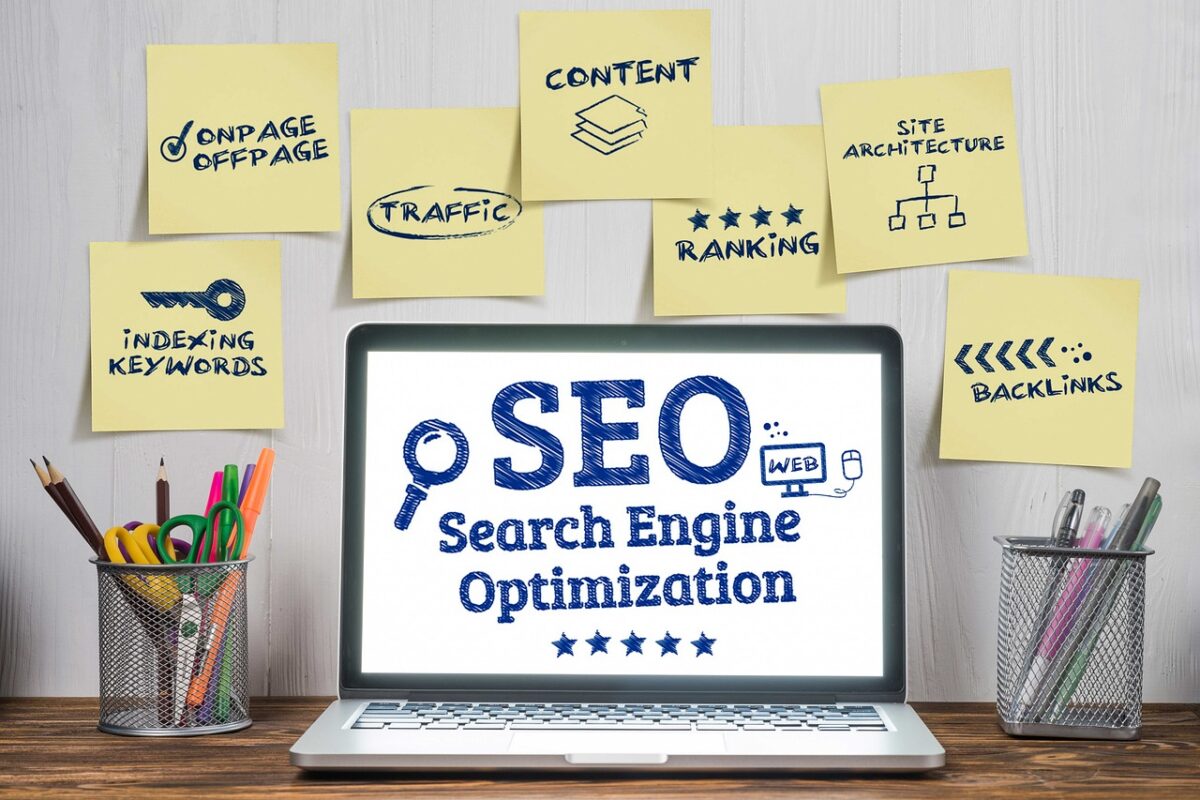Table of Contents
- What Is SEO and Why Does It Matter?
- Core Components of Effective SEO
- How to Approach Keyword Research for Long-Term Success
- On-Page SEO Tips to Boost Rankings
- Off-Page Strategies: Building Trust and Authority
- Technical SEO: Optimizing for Search Engine Crawlers
- Measuring SEO Success with Key Metrics
- Future Trends in SEO and What to Expect
What Is SEO and Why Does It Matter?
SEO is a crucial strategy for businesses to appear at the top of search results, especially in a digital era where Google processes over 8.5 billion daily searches. It involves attracting qualified visitors who are actively searching for your offer rather than just driving traffic. A well-executed SEO approach can build a foundation of organic traffic that grows over time, delivering ongoing value long after the initial investment. Organic search drives over 53% of all website traffic globally. Businesses seek local expertise to improve their online presence—some opt for SEO Denver, Colorado methods to navigate unique market dynamics. Still, the core techniques for organic growth remain universally applicable. With consistent optimization, businesses can outperform competitors and become the go-to authority in their industry. SEO also supports other marketing efforts by enhancing visibility and credibility across channels. Staying updated with best practices is key to maintaining long-term success as algorithms evolve.
Core Components of Effective SEO
Building a successful SEO strategy is more than sprinkling keywords across your web pages. The process is anchored in three main pillars: on-page optimization, off-page authority, and technical best practices. On-page SEO is all about making your website content relevant, accessible, and easy for both users and search engines to understand. This includes everything from structuring your headings and meta descriptions to using imagery and internal links. Meanwhile, off-page SEO relies on signals that happen away from your site, like earning backlinks and citations from trustworthy sources. These serve as endorsements in the eyes of search engines—the more reputable links you accumulate, the more likely your site is to be considered an authority within your industry. Finally, technical SEO is the behind-the-scenes element that impacts how well search engines can crawl and index your content. This includes optimizing site speed, mobile-friendliness, secure connections, and employing structured data. Treating each pillar equally helps create a balanced and resilient online presence.
How to Approach Keyword Research for Long-Term Success
Every powerful SEO campaign is rooted in strategic keyword research. This identifies the words, phrases, and topics your target audience searches for before landing on your website. But keyword research today is much more sophisticated than simply jotting down a few terms you think are essential. Successful marketers combine tools and intuition—using platforms like Ahrefs, Google’s Keyword Planner, and competitor insights to uncover high-volume keywords and niche queries, long-tail search terms, and high-conversion questions. A critical part of keyword research is understanding user intent. Are people searching to buy, learn, or compare? Mapping the right keywords to specific pages on your website based on whether searchers want information, navigation, or a transaction improves engagement and conversions. Staying current is key as language evolves—what your audience searches for today might shift tomorrow. Revisiting your keyword list every quarter and expanding your research to capture seasonal or trending queries ensures your site remains relevant and competitive in changing markets.
On-Page SEO Tips to Boost Rankings
- Craft Clear Title Tags: Title tags should be unique for every page, accurately describe the content, and include target keywords near the beginning. This improves ranking potential and catches users’ attention.
- Write compelling meta descriptions. Well-written descriptions can increase click-through rates from search results. Use active voice, relevant keywords, and a clear value proposition.
- Use Headings for Structure: Headings break up large text blocks, guide readers, and allow search engines to interpret page hierarchy better.
- Optimize Images: Add descriptive alt text for accessibility and search, and compress images to ensure quick loading times on all devices.
- Maintain Internal Linking: Create logical pathways through your content using descriptive anchor text so users and search engines know where each link leads.
Search engines increasingly favor content that demonstrates expertise and directly addresses user intent. Content should offer a full and satisfying experience—complete answers, original insights, and clear next steps. By focusing on quality, organization, and usability, your pages will be better positioned to attract users and search engines.
Off-Page Strategies: Building Trust and Authority
While you have total control over your website, off-page SEO deals with what others say and do about your brand online. Gaining high-quality backlinks from respected sources signals trustworthiness and relevance to search engines. This is why many businesses prioritize earning links from industry publications, educational platforms, news outlets, and authoritative blogs. Natural link-building happens when you publish helpful, newsworthy, or unique content others want to share or cite.
Beyond links, participating in online discussions, industry panels, or digital events helps increase your brand’s exposure and credibility. Being mentioned on social media, referenced in resource lists, and maintaining positive online reviews also feed into your site’s perceived authority. Over time, these activities create a diverse portfolio of trust signals that improve your ranking potential and open the door to collaborative opportunities within your space.
Technical SEO: Optimizing for Search Engine Crawlers
Technical SEO is the unsung hero of organic growth—often invisible to users but critical for success. Technical SEO involves refining your website so search engines can easily access, read, and index your content. Site speed is a significant factor: studies highlight that even a one-second lag in load time can drop conversions by 7%, according to insights from Search Engine Land. Fast load times, intuitive navigation, and a mobile-first design are now table stakes. Other technical priorities include preventing and resolving crawl errors (like 404 pages), optimizing your robots.txt and sitemap.xml files, and using schema markup to provide richer search results. Before they impact rankings, regular technical audits help uncover potential issues, like duplicate content, broken links, or improper redirects. Treating technical SEO as a continuous process rather than a one-off fix is essential.
Measuring SEO Success with Key Metrics
Measuring your SEO effectiveness matters as much as the tactics you deploy. The primary metric is organic traffic: how many users arrive at your site via unpaid search results. Yet, not all traffic is created equal—it’s essential to identify which pages drive engaged visitors who spend time, interact, and convert. Tracking your keyword rankings shows how you’re progressing against competitors, while bounce rate and dwell time reveal whether your content matches searcher expectations. Conversion metrics, like form submissions or completed sales, paint the clearest picture of SEO’s ROI. You can access actionable insights on what’s working and where further optimization is needed using platforms such as Google Analytics and Google Search Console. You can adjust your content and technical efforts to align with evolving goals and market shifts by monitoring your metrics quarterly or monthly.
Future Trends in SEO and What to Expect
SEO continues to evolve along with technology and user behavior. Artificial intelligence, voice search, and real-time data are changing how search engines present results and how people expect to find answers. Emerging trends, such as Google’s increased focus on user experience metrics like Core Web Vitals and innovative search result formats, are shaping the industry’s future. As noted in the latest SEO trends reports, a strong strategy begins with understanding evolving user intent and delivering content that meets those needs. SEO is no longer just about keywords and links; it’s about optimizing for people—how they speak, what they value, and the digital experiences they prefer. Brands that stay agile and committed to learning are the most likely to thrive as organic search transforms.




